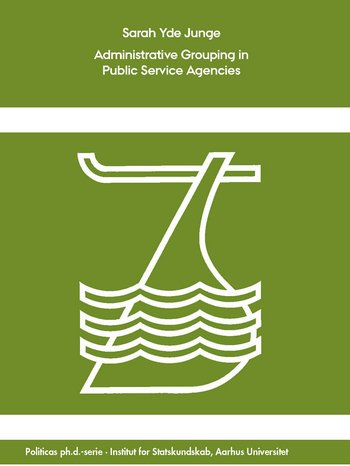Sarah Yde Junge
Administrative Grouping in Public Service Agencies

Public service provision usually entails a division of work where cases are delegated to individual street-level bureaucrats or a small group of street-level bureaucrats. This delegation creates administrative groupings of cases, like the group of patients assigned to the same general practitioner, the group of students in a classroom, the group of unemployed people referred to the same caseworker, or the division of neighborhoods into patrol districts. Administrative groupings are everywhere and are often a prerequisite for the provision of public services. Legal regulation as well as the bureaucratic organization of public service agencies ought to secure equal treatment of citizens, but through rigorous empirical investigations of actual groupings in the Danish school system, this dissertation shows that grouping itself may influence citizens’ outcomes. Groups may provide a comparative standard for street-level bureaucrats’ assessments such that cases in better-performing groups are likely to be assessed as more poorly performing, and interaction between group members seems to influence individuals on important dimensions. Thus, there are good reasons for both researchers and practitioners to be concerned with how cases and citizens are assigned to groups, because the grouping itself may influence the distribution of public service outcomes.
![]() Ophavsretten tilhører Politica. Materialet må ikke bruges eller distribueres i kommercielt øjemed.
Ophavsretten tilhører Politica. Materialet må ikke bruges eller distribueres i kommercielt øjemed.